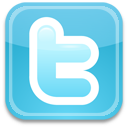





|
|
| TextureQuad | |
| TextureQuad TextureImage, x1, y1, u1, v1, x2, y2, u2, v2, x3, y3, u3, v3, x4, y4, u4, v4, TransparentFlag | |
| Parameters: TextureImage = The image number to be used as the source texture x1 = X coordinate of point 1 y1 = Y coordinate of point 1 u1 = The U coordinate of point 1 on the texture v1 = The V coordinate of point 1 on the texture x2 = X coordinate of point 2 y2 = Y coordinate of point 2 u2 = The U coordinate of point 2 on the texture v2 = The V coordinate of point 2 on the texture x3 = X coordinate of point 3 y3 = Y coordinate of point 3 u3 = The U coordinate of point 3 on the texture v3 = The U coordinate of point 3 on the texture x4 = X coordinate of point 4 y4 = Y coordinate of point 4 u4 = The U coordinate of point 4 on the texture v4 = The V coordinate of point 4 on the texture TransparentFlag = Render the image with or without transparency (0=solid, 1=transparent) |
|
| Returns: NONE | |
TextureQuad draws a texture mapped quad (four sided polygon) to the current surface. This command uses a previously loaded or created image as the texture, which will be mapped onto the polygon surface. Transparent Flags: 0 = Solid 1 = Transparent (uses mask colour or alpha channel on AFX images) 8 = Solid With Bilinear Filter 9 = Transparent With Bilinear Filter (uses mask colour or alpha channel on AFX images) FACTS: * U/V coords are the X/Y coords in Texture space. * U/V coords should never exceed the size (width and height) of the texture. * U coords should range from 0 to the Texture Images Width-1 * V coords should range from 0 to the Texture Images Height-1 * Note: For best results it's recommended that your texture be in FX image. Moreover small textures render faster than larger ones. So sometimes it can more efficient to split larger images up into small blocks, than using the entire thing as a texture. * TextureQuad will render to the current surface, except when the user has either CaptureToScene, or CaptureToWorld activated. In either situation the drawing request will be added to the scene or world queues. * TextureQuad can react to some InkMode settings Mini Tutorial: This example first manually creates an image filled with coloured circles. It then converts this to an FX image. Once converted it can then draw this image to the screen using it as a texture for the TextureTri command.
|
|
Example Source: LOGIN to Download This Example
|
| Related Info: | GouraudQuad | GouraudStripH | GouraudStripV | GouraudTri | Quad | QuadC | TextureStripH | TextureStripV | TextureTri | Tri | TriC : |
|
|
|||||||||||||||||||||||||||||||||||||||





|
(c) Copyright 2002 - 2025 - Kevin Picone - PlayBASIC.com |